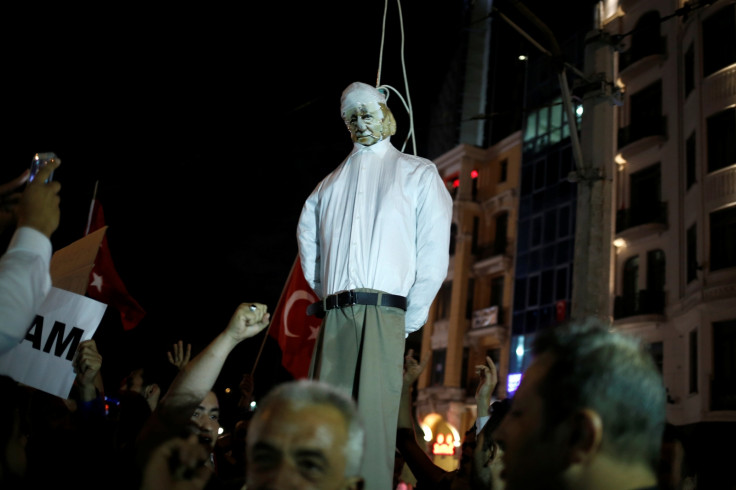Erdogan regime cracks down with arrest warrants for 42 journalists in Turkey coup aftermath
Arrest orders issued over journalists' apparent links to cleric Fethullah Gulen.

Authorities in Turkey have issued warrants for the arrest of 42 journalists in the country as the Erdogan regime continues to crack down on opposition in the wake a failed coup.
Turkey's state broadcaster TRT reported the arrest orders had been issued over the journalists' links to the cleric Fethullah Gulen, a Turkish opposition leader in exile in the United States. Turkish President Recep Tayyip Erdoğan and other state officials have accused the figurehead of orchestrating the coup on 15 July. Gulen has denied any involvement.
The list of 42 journalists includes Nazli Ilicak, who has been critical of Erdogan's increasingly authoritarian rule and has opposed a government clampdown in which 13,000 people in the military, judiciary and other institutions have been detained.
Human rights groups have been deeply critical of the crackdown in Turkey. Claims have been made that detainees are being held without charge in informal places of detention. Some detainees, including three judges, were held in the corridors of courthouses. Those under arrest have been denied access to lawyers and family members and have not been properly informed of the charges against them, undermining their right to a fair trial.
On 23 July, the Turkish government issued its first decree under new powers authorised by its declaration of a state of emergency. As part of these measures, Erdoğan has increased the period of detention for suspects from four days to 30.
Further reports of ill-treatment include Turkish police in Istanbul and Ankara holding detainees in stress positions for up to two days, and withholding food, water and medical treatment. Some claim they were blindfolded throughout their detention.
© Copyright IBTimes 2025. All rights reserved.






















